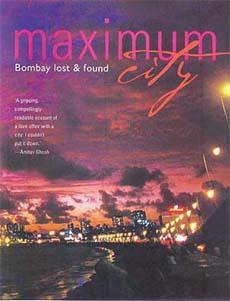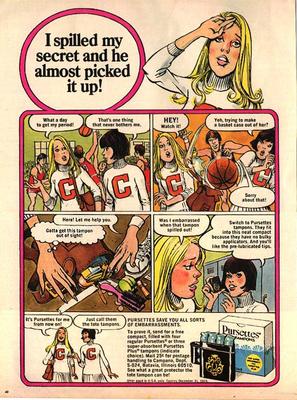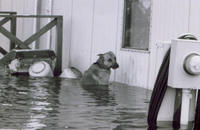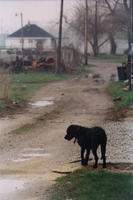 ENTERTAINMENT WEAKLY
ENTERTAINMENT WEAKLYDuring our many years of hanging out, Larry David Midwest and I have seen some of the most challenging (ie; worst) films and plays ever produced. The most recent of the former was Must Love Dogs. We only went to see it because we were tired, it was at the
Davis Theater (a discount venue where you are encouraged to talk back to the screen, and which is an easy walk or bike ride for each of us), and the two art films we wanted to see either played at the wrong time or were too far away. I went under the guise of doing “research” for the screenplay that Gridlife and I are supposed to be writing (as of this writing we’re on page 33).

Much wincing took place during the screening. Did you know that wearing pyjamas during the day means you’re depressed? You do now…. The evening was saved by a mildly overpriced al fresco dinner across the street at Essence of India. There’s plenty of people-watching to do in Lincoln Square, and that’s a primo location in which to do it. Unfortunately most of the people look/dress the same – like an episode of What Not to Wear -- but what else is new in Chicago. At least it was a nice night.

On Labor Day we hit the jackpot with a daytime (discount) screening of Junebug, which along with Crash is one of the best American films to come out in some time. You know, they have the drama and the good-looking people AND they deal with real issues (race, class, conditioned existence, etc.) in a provocative way. Junebug also made some interesting statements about outsider art, sibling rivalry, Chicago vs. New York and that whole thing where your city-dwelling self goes back to see the family and feels like an alien and eats too much and watches TV the whole time. This film had one of the most astonishing opening scenes I'd ever seen -- it shut everyone up and pulled us in immediately.
After Junebug, which we saw at Piper's Alley in Old Town, LDMW and I headed over to to see if we could find
Old JerUSAlem, one of the oldest Middle Eastern restaurants in the city. It was so long since either of us had been there that we thought it might be gone. But it was right where we had left it, with a more luxurious interior and outdoor seating to boot.*

Not only had the interior of old JerUSAlem changed. The prices had gone up and the service was no longer surly! And, somehow, they had made the food even better (suffice to say, it makes Andie’s seem like airline food). So we sat outside and talked and talked and talked about the movie. Then we rode our bikes to Ben & Jerry’s and talked about it some more (is it just me, or is it IMPOSSIBLE to get frozen yogurt these days?). Then we stopped near my house and talked some more while watching a parade of drunken, red-faced parrotheads in grass skirts and Hawaiian shirts weave their way home after an afternoon of watching multimillionaire Jimmy Buffet go through the motions at Wrigley Field.
It’s always hit-or-miss with Larry David Midwest and I -- more often the latter -- and on Saturday I had press tickets to see Hephaestus at the
Lookingglass Theatre (that’s the company known for its adaptations of literary works and which boasts David Schwimmer* and other Northwestern alumnae as founding members. I saw Killdozer and Karen Finley perform – separately – at their first space, a rough loft called Edge of the Lookingglass, back in ‘88. Now they pay the city $1 a year for posh digs in the city’s landmark Water Tower pumping station). The show was subtitled “A Greek Mythology Circus Tale,” which should have been fair warning. But it starred several members of the Wallenda family and promised circus tricks plus it was free and included a reception beforehand and besides, I’d never been to the new space.

We took the El to the theatre, which is next to Water Tower Place mall in the most shimmering party of the Gold Coast. When we got there we found that the AC wasn’t working. The snacks consisted primarily of bags of pop/caramel corn that no one could open. So we sat on the steps and watched people arrive (OMYGOD! HOW ARE YOU!) and try to open their bags. Popcorn flew everywhere, much to our delight. Again it was a lovely night, and we watched a man arrive with a hand-truck stacked high with cases of bottled water. Nicely-dressed Lookingglass company members or employees made many trips back-and-forth toting the stuff inside, one case at a time.
Finally the lights blinked and we went inside and found that the AC was still out and there was a bottle of water on each and every seat, which delighted me. Everyone was fanning themselves despite the fact that it was a comfortable 72 degrees. A man came onto the stage with a child on his hip, and announced that the AC was out and that they would give people tickets for another night if they couldn’t deal. He said that we could only leave the (65 minute long) show if there was an emergency, since it could get dangerous what with all the performers doing trapeze acts so close to us in the intimate theatre.
I think Larry DMW hated the singing little girl on the bed the most. The show opened with a thunderstorm and real rain – a
Steppenwolf***-esque stunt typical of theaters with money to burn – and the cute little girl crawling under the covers. Then she came out, opened a book and started to sing about Hephaestus, a minor Greek god who didn’t have a father and was disfigured with a scraggly beard. He was cast out by his mother, Hera, and fell down down down from the ceiling via trapeze to a world filled with four beautiful Wallendas who did some stunning stunts (including Hanumanasana or splits), each with two long banners of fabric. It was amazing to watch but could have been edited a bit.

The four beauties saved Heph but his legs didn’t work and he became God of Fire / The Forge and crafted beautiful jewelry for them. Every time he forged, two silver guys appeared and played big drums in profile, a la Blue Man Group. But things are funnier in threes and this was dead serious from start to finish. The bulk of the music was canned newage straight out Cirque.
Many of the pieces Heph forged looked like silver hula hoops, and a woman came out and did some tricks with them. And more tricks with them. And more tricks with them. So many hula hoops at one time! Two silver chicks stood nearby (they had those silver go-go boots I looked so long and hard for last year and never found), coolly hula-hooping one ring each the entire time. Their hair was in pigtails and also silver.

Then more forging and at some point Heph was given some silver shin guards that allowed him to walk. His mother (his wife in real life, hmmm) came down from the rafters in a silver hoop he made for her. After some tricks she threw off her cape, at which point LDMidwest made a circular gesture with his hands, suggesting that she continue to remove her clothing.
Hera sent down Aphrodite, the goddess of love, as a gift. This pretty girl was a contortionist – doing those Cirque Chinese acrobat girl stunts on those three vertical sticks with square blocks on top, amazing – so of course he married her. He was happy but still had that scraggly beard.
The silver girls bounced up and down like crazy (very cool) and did somersaults on trapezes while delivering to him little pieces of wood that he arranged and then threw into the forge. More Blue Man Group drumming. Then a chair (wood! Ugly!) came out of the forge. He tightroped it up to his mother Hera in the heavens. She liked it and they performed a major tightrope trick which had her standing on said chair balanced on a pole suspended between Heph and a silver guy, who were themselves walking a tightrope. That was cool but if I’m not mistaken the little girl started to sing again.
Afterwards LDMidwest heard a man (possibly a local drama critic Lawrence Bommer, I’m not sure) say, “Where was the story? Where was the story?” and LDMW chimed in of course. LDMidwest could not stand the little girl. He suggested the show would attract many suburbanites who would think it was cutting-edge. He thought it would be much improved, and would play well in Las Vegas, if they admitted it was just a highfaloutin’ striptease with highwire, and had everyone (minus the little girl of course) perform naked. “Turn it into a real strip show, which is what it is!” Yeah, I said. They could change “Hephaestus" to “Hef.”
I suggested that they don’t ever have AC during the run of the show, since if my yoga practice is any indication, it might make the contortionists and other performers (all of whom were short, gymnastic types) too stiff to perform. LDMW said that the guy who made the announcement brought the kid with him to get sympathy. I envisioned a scenario in which he comes out every night to make the same announcement, each time with a smaller child on his hip until finally he comes out with a hugely pregnant woman who can barely walk, and whom he must support. Now
that would be good theater.
All in all, it was well done but simply not our cup of chai (took itself way too seriously, we thought). But I was glad and thankful to have seen it. Yes, I know how easy it is to riff on someone else's art. But one thing is true -- Lookingglass did indeed succeed in its mission to present "theatre without a net."
But next time I think we’ll go to see some “alternative" theatre event. Maybe
Plasticene has something coming up soon. They have neither net nor budget and yet manage to run circles 'round the other troupes. No $1 lease from the city for them, though.
--------------------

Le Giger poster (left)
*I used to eat at Old JerUSAlem quite often in the late 1980’s, when I was a board member of the Illinois Coalition Against Censorship. Our meetings were held at the nearby Bijou Theatre, which was famous for its oft-hilarious recorded messages advertising the gay porn they screened and sold. The board members were all liberal idealists, fueled by outrage against Edwin Meese, the proposed flag-burning amendment, and the witchhunts against the Last Temptation of Christ and the work of arists Andres Serrano and Robert Mapplethorpe. Adding fuel to the fire was the Parents Music Resource Center hearings (Dee Snyder, John Denver and Frank Zappa were among those who gave testimony defending free speech and pop music lyrics, while Tipper Gore and the late Illinois senator Paul Simon’s wife headed the pro-censorship side of things; the latter succeeded in getting warning labels stuck on albums and essentially paralyzing the careers of all three recording artists). As if that weren't enough, the Dead Kennedys’ Jello Biafra was being attacked for including a HR Giger poster depicting interlocked genitals in the band’s Frankenchrist album, and both he and Zappa gave speeches and had anti-censorship groups setting up booths at their concerts / talks (In a single month in 1987 [?] I saw Zappa perform at the Auditorium Theatre – amazing, and I don’t even like/get his music – and Jello speak at Northwestern University). ICAC’s funding came entirely from pornographers, both gay and straight, since they’re always the first ones to take a hit when the conservatives go after the First Amendment. My anti-censorship career had two highlights: hooking up Jello Biafra (whom I met when he was eating at Chicago Diner and recording down the street at Chicago Traxx) with Libertyville-based Mary Morello (Tom’s Mom), who had just started a new group called Parents for Punk and Rap. The other highlight was planning a well-attended benefit screening (35MM!) of
Lenny (the Bob Fosse biopic about Lenny Bruce and his demise, which was caused in part by the authorities who repeatedly arrested him for the “obscene” content of his act). The wine-and-cheese reception featured a very cool display and timeline created by my boyfriend-at-the-time and I. Those were the days. Before the Internet and cell phones, when one had actual tangible free time.
**The actor who will forever be known as Ross is dating The Hex’s cousin, who served in the Israeli army, and with whom we stayed during our 2000 trip to London.
***Steppenwolf is the well-endowed Chicago theatrical institution that counts John Malkovich, Laurie Metcalf, John Mahoney, Gary Sinese and Martha Plimpton among its many ensemble members.











































